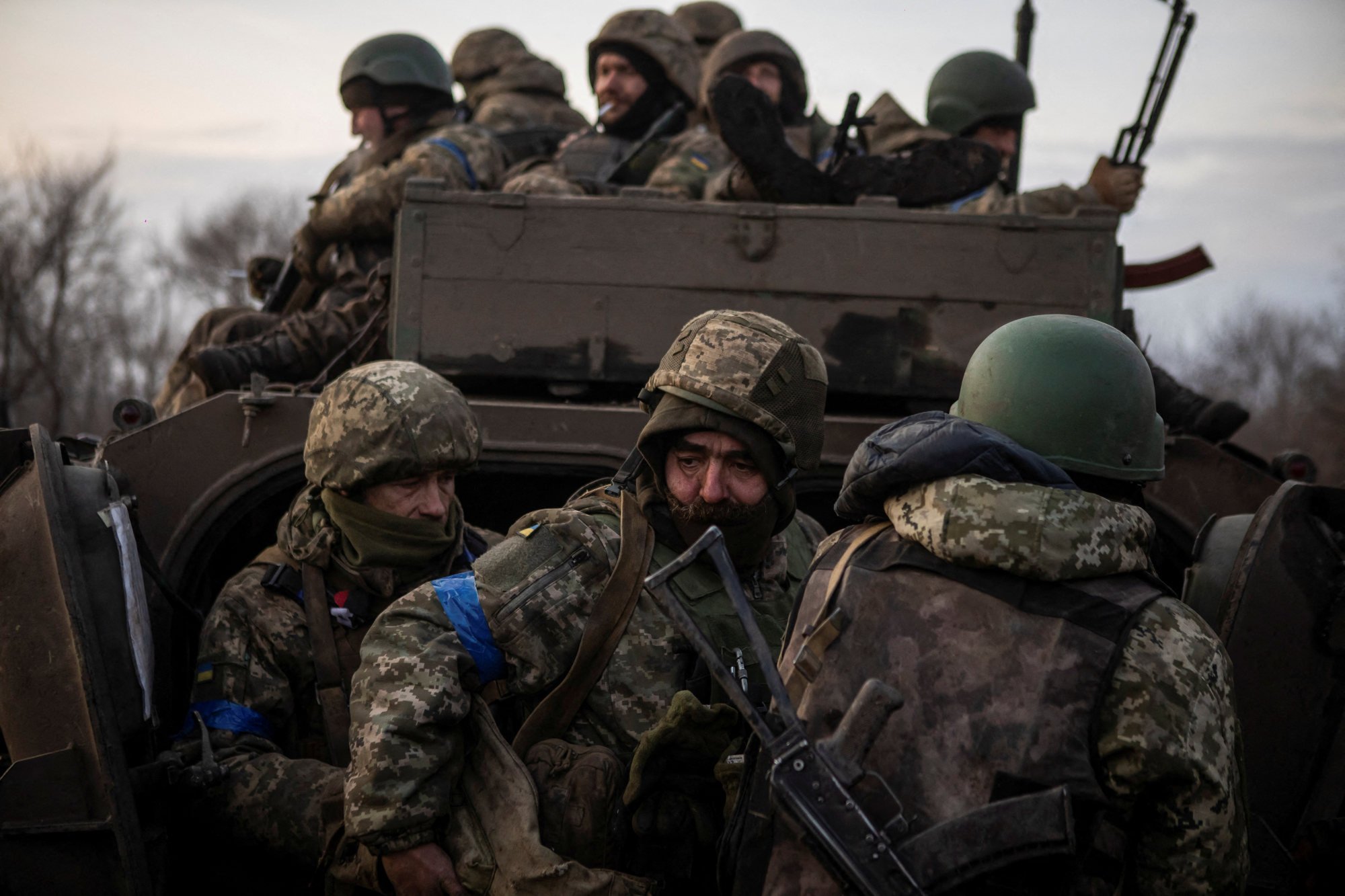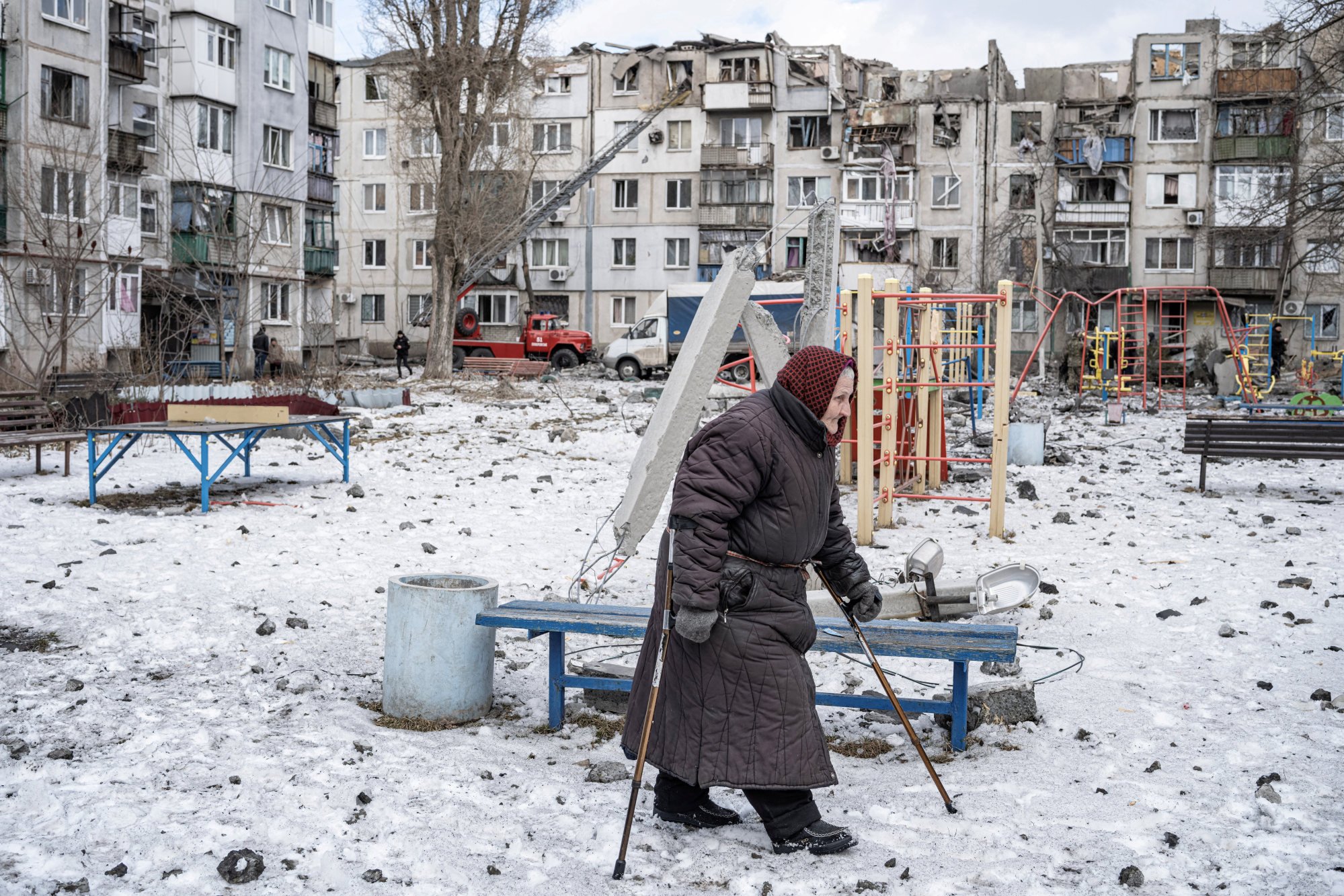Russia’s invasion of Ukraine in February 2022 has led to tens of thousands of deaths on both sides and created Europe’s largest refugee wave since World War II. In this multimedia series marking the one-year anniversary of the conflict, we look at China’s response to what Russian President Vladimir Putin called a “special military operation” and its diplomatic, military, monetary and economic impact.
Kyiv and Moscow might be thousands of kilometres from Africa, but the impact of the Russian invasion of Ukraine has been felt across the continent – from Khartoum to Cairo.
The war has worsened food crises in African countries including Egypt, Nigeria, Somalia, Sudan, Eritrea and Kenya that are heavily dependent on wheat imported from Russia and Ukraine because it has disrupted supply chains and cut access to affordable wheat and fertiliser from the Black Sea region.
As the war enters its second year, tensions between China and Russia on the one side and the United States on the other have increased, with observers saying Africa has been turned into a geopolitical battleground.
Gustavo de Carvalho, a senior researcher on Russia-Africa ties for the African governance and diplomacy programme at the South African Institute of International Affairs, said the war had mostly had an indirect impact on China-Africa relations, with diplomatic, military and economic ties remaining strong.
But “the conflict has created geopolitical sensitivities as China and the West compete for influence in Africa”, he said.
China, the US and Russia have gone on a diplomatic charm offensive to woo African countries. The US sent Treasury Secretary Janet Yellen and US ambassador to the UN Linda Thomas-Greenfield to Africa in quick succession last month as it renewed its focus on the continent to counter growing Chinese influence and to push for more African countries to condemn the Russian invasion of Ukraine. Another delegation of special US envoys is attending the African Union Summit in the Ethiopian capital Addis Ababa.
Russia has sent its foreign minister, Sergey Lavrov, to the continent three times since its “special military operation” began a year ago, seeking to woo African countries to its side as it faces global isolation, and Foreign Minister Qin Gang visited five African countries – Ethiopia, Angola, Gabon, Benin and Egypt – last month.
Moscow has ramped up its military engagement with African countries including Libya, Burkina Faso, Sudan, Mali and the Central African Republic, where the Wagner Group – pro-Kremlin mercenaries – provides security for governments or coup leaders. In 2021, when France fell out with Mali’s military government, the West African nation clinched a deal with Russia to bring in military trainers, mostly from the group.
Many African countries have tried to stay clear of the great power competition between Beijing and Washington, preferring to remain non-aligned. When US Secretary of State Antony Blinken visited South Africa last year, the country’s minister for international relations and cooperation, Naledi Pandor, said it was “patronising” for the West to force African countries to condemn Russia. “One thing I dislike is being told ‘either you choose this or else’,” Pandor said in August.

Ukrainian soldiers gather around an armoured vehicle outside Bakhmut during a Russian attack in Ukraine’s Donetsk region on February 11. Photo: Reuters
In March last year, South Africa was among more than a dozen African countries that, along with China, abstained from voting on a UN resolution condemning the Russian invasion of Ukraine.
China has also told the West that countries should not be forced to take sides, with a statement released after a phone call between President Xi Jinping and South African counterpart Cyril Ramaphosa in March last year saying: “Both sides agree that China and South Africa hold a very similar position on the Ukraine issue, and that sovereign countries are entitled to independently decide on their own positions.”
De Carvalho said many African countries had long preferred a non-aligned approach to global geopolitical disputes, prioritising their autonomy and independence.
“However, as global power competition intensifies, there are concerns that African states may be increasingly caught in the middle,” he said. “The 2022 abstentions on UN votes related to the Russia-Ukraine conflict demonstrate a reluctance among some African countries to take sides in global conflicts.”
China’s global stance on the Ukraine war had been, when possible, to continue relations as normal, said Jason Li, a research associate with the East Asia programme at the Washington-based Stimson Centre think tank, with China-Africa relations no exception.
“China hopes to weather the storm by continuing to trade not only with Russia but also with the world,” he said. “As we saw, despite the Ukraine war and tensions between Washington and Beijing, bilateral US-China trade has continued. The same could be inferred about other global trade.”
Li said China’s campaign to promote itself as a champion of the Global South extended to both its and sub-Saharan Africa’s approach to the Ukraine conflict.
“Like with UN General Assembly resolutions on Syria, Africa as a whole abstained,” he said. “This aligns with the motivation for China and some African regimes’ opposition to interventionist UN policy.
“It is in each side’s self-interest to walk the line of not overtly supporting Russia’s brutal invasion or the West’s strong protestations. In doing so, China and Africa can continue business as usual.”

A woman walks through a playground in Pokrovsk, in Ukraine’s Donetsk region, on February 15 after a nearby block of flats was badly damaged by a Russian missile. Photo: Reuters
David Shinn, a specialist in China-Africa relations at George Washington University’s Elliott School of International Affairs in Washington, said China’s increasing reliance on Russian energy and its tacit support of Russia’s invasion of Ukraine posed a challenge for Beijing’s relations with those African countries, probably a majority, which were repelled, albeit quiet, about the infringement of Ukrainian sovereignty.
“China is trying to walk a fine line of supporting the Russian rationale – it’s Nato’s fault – while not becoming more directly tied to Russia,” Shinn said.
South Africa is currently holding joint military drills with China and Russia, a move that has been condemned by the US and some European countries.
Shinn said the timing of this month’s naval exercise off South Africa was especially perplexing.
“This will tie China – and South Africa – closer to Russia and make it increasingly difficult for China to sell in Africa its long-standing policy of support for state sovereignty,” Shinn said.
Paul Stronski, a senior fellow with the Russia and Eurasia programme at the Washington-based Carnegie Endowment for International Peace, said African countries saw the Ukraine war as a distant European war and wanted to stay out of it.
“Many also see double standards of the West – the intense support the West has given to Ukraine militarily and to Ukrainian refugees in Europe, while not giving similar support to African conflicts or refugees,” Stronski said.
But he said that while many African countries had not voted to condemn Russia’s invasion of Ukraine, more had endorsed subsequent resolutions on Russian violation of Ukrainian sovereignty, and condemnation of Russia’s annexation of additional Ukrainian land.
Benjamin Barton, a China-Africa expert and an associate professor at the University of Nottingham’s Malaysia campus, said the war had, perversely, benefited China’s standing in Africa by taking the heat off China to some extent as the West’s bogeyman.
“There’s been less scrutiny on what China has been doing on the continent, with interest shifting instead to how Moscow has sought support from specific African states to legitimise its invasion of the Ukraine,” he said.
South China Morning Post





